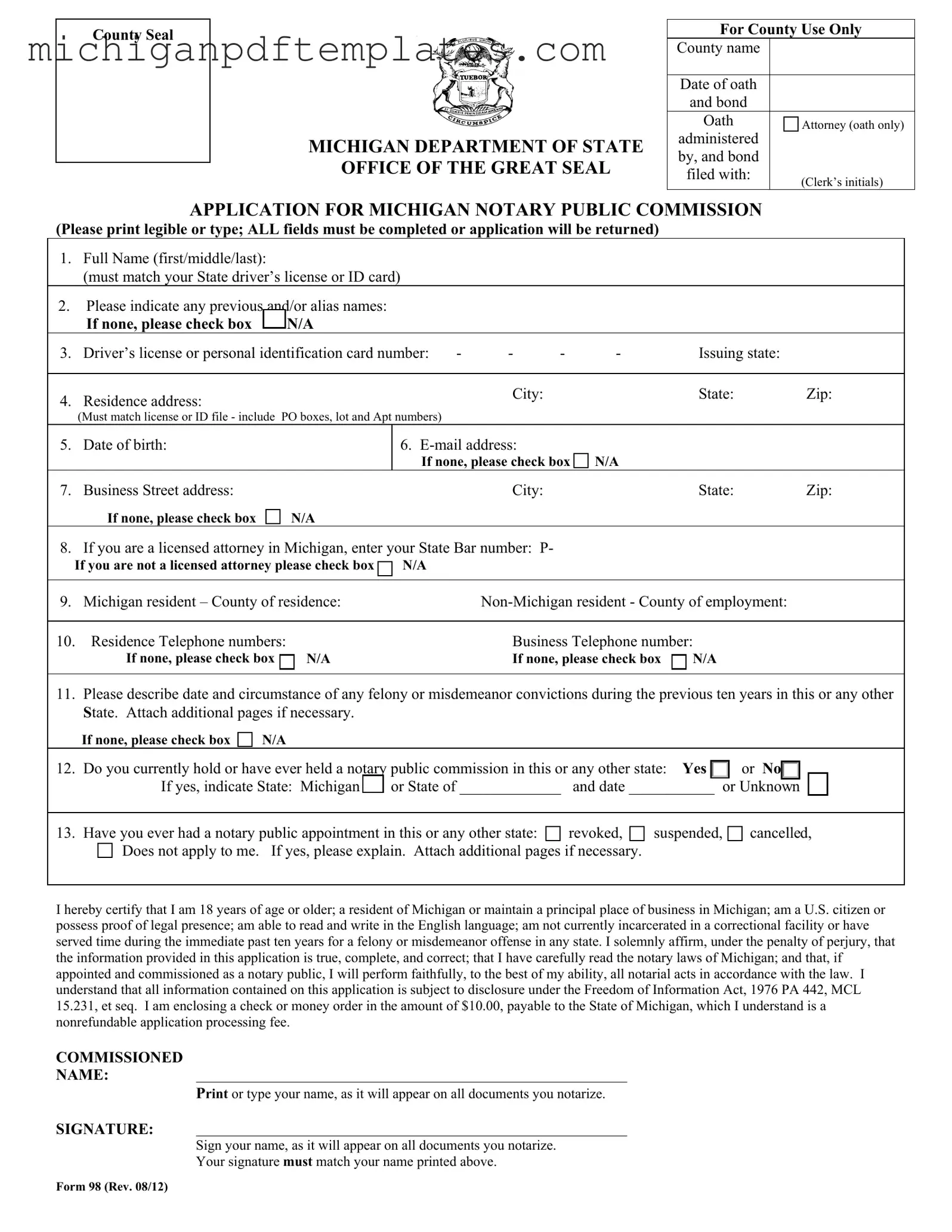Fill in Your Michigan 98 Form
The Michigan 98 form is an essential application for individuals seeking a notary public commission in the state of Michigan. This form requires detailed personal information, including identification, residency, and any prior legal issues, to ensure that applicants meet the necessary qualifications. Completing the Michigan 98 form accurately is crucial for a smooth application process; begin by filling it out today by clicking the button below.
Get Your Form Now

Fill in Your Michigan 98 Form
Get Your Form Now

Get Your Form Now
or
▼ PDF Form
Finish this form quickly and move on
Fill in and complete Michigan 98 online quickly.